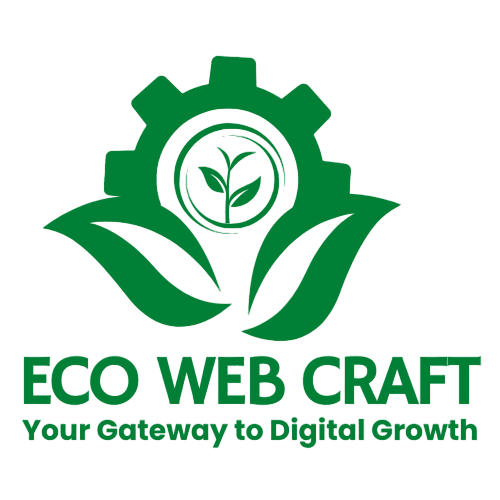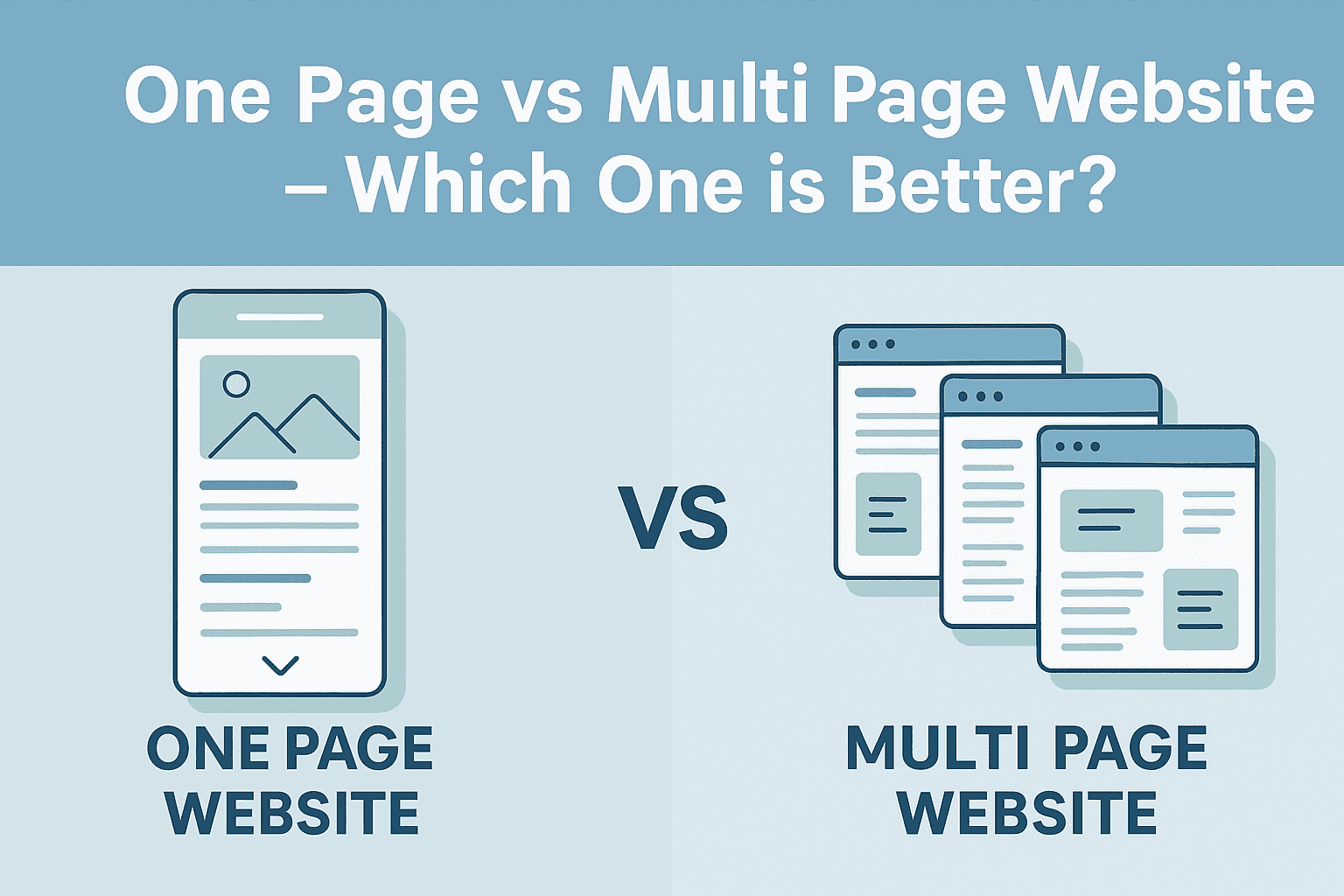So you’ve decided to build a website for your business (great decision!) — but now you’re stuck on the next question:
Should you go with a one-page website or a multi-page website?
Don’t worry — you’re not the only one asking this. Many business owners and startups face the same confusion.
In this blog, I’ll break down the difference, give you real examples, pros and cons, and help you decide what’s best for your business. No tech jargon. Just simple, real talk.
First, What’s the Real Difference?
One Page Website
A single, scrollable page that contains all the key sections — like About, Services, Portfolio, Contact — all on the same page.
Multi Page Website
A traditional website structure with multiple pages — each section (Home, About, Services, Contact, Blog, etc.) has its own dedicated page.
Why People Love One Page Websites
One-page websites are simple, clean, and easy to browse — especially on mobile.
✅ Pros:
- Straight to the point – Everything is on one page, no clicking around.
- Great for storytelling – Perfect if you want to guide the visitor step-by-step.
- Faster to build – Less content = quicker setup.
- Mobile-friendly – Smooth scroll makes it ideal for phone users.
- Lower cost – Less design and development work needed.
❌ Cons:
- Limited space – Not ideal for businesses with lots of services or information.
- SEO struggles – Fewer pages means fewer keyword opportunities.
- Not very scalable – Hard to expand in the future without redesigning.
“If you’re a freelancer, consultant, or launching a single product — one page is enough.”
Why Multi Page Websites Are Still the Standard
Most established businesses still prefer multi-page websites — and for good reason.
✅ Pros:
- More SEO power – Each page can target a different keyword or topic.
- More organized – Easier for users to find what they’re looking for.
- Scalable – You can add new pages anytime.
- Professional look – Feels more complete and detailed.
❌ Cons:
- Can overwhelm users – Too many pages = too many decisions.
- Takes longer to build – More pages = more content and design time.
- Slightly higher cost – More work for developers and designers.
“If you offer multiple services, have a blog, or plan to grow — multi-page is your friend.”
Which One Is Right for You?
Here’s a quick guide:
| Your Situation | Go For |
|---|---|
| Launching a product | ✅ One Page |
| Portfolio or Resume site | ✅ One Page |
| Event or Webinar landing | ✅ One Page |
| Agency or Service business | ✅ Multi Page |
| E-commerce store | ✅ Multi Page |
| SEO is a priority | ✅ Multi Page |
| Planning to scale or blog | ✅ Multi Page |
Real Examples
- One Page Example: A freelance photographer showing services, portfolio, testimonials, and contact on one scroll.
- Multi Page Example: A digital marketing agency with Home, About, Services (each with its own subpage), Blog, Case Studies, and Contact.
Can You Start with One Page and Upgrade Later?
Yes, 100%! Many small businesses start with a one-page website to save time and money, and later turn it into a full multi-page site as they grow.
At EcoWebCraft.com, we often build one-page starter websites with the option to scale later.
Final Thoughts
There’s no “better” choice — only the one that fits your goals, content, and future plans.
👉 If you’re just starting and want something quick, simple, and clean — go one-page.
👉 If you have a lot to say, want to grow, or care about SEO — go multi-page.
Need Help Deciding or Building?
Whether you choose a one-pager or a full-blown website, we’ve got you covered. At Eco Web Craft, we design fast, mobile-friendly, SEO-ready websites tailored to your business.







